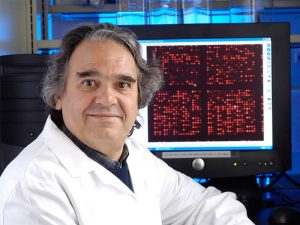Ten years after a neuroscientist was fired from his job at a Veterans Administration Medical Center, he has won a challenge of the decision.
Wayne State University, where the researcher, Christian Kreipke, was studying traumatic brain injury, fired him in February 2012 following a research misconduct investigation that found he had faked data. At the time Kreipke had a dual appointment at the John D. Dingell Veterans Administration Medical Center in Detroit.
Kreipke maintains that Wayne State investigated him in retaliation for asking questions about how the university administered grant funding. He filed a whistleblower lawsuit after he was fired alleging that the university had committed grant fraud against the federal government, to the tune of $169 million. In 2014, a judge dismissed the case.
Continue reading Scientist with six retractions wins challenge of firing, funding ban








